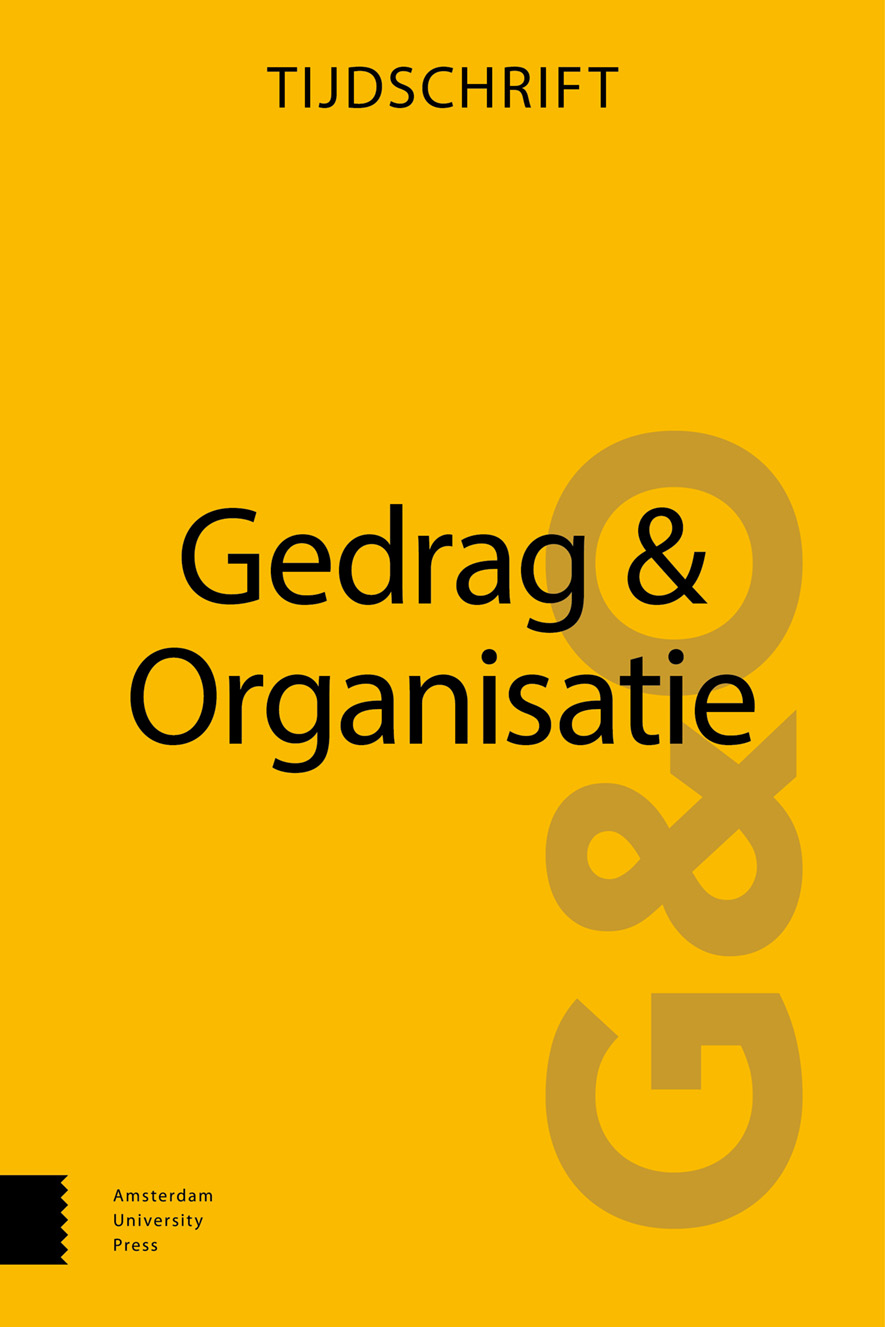-
OAVan rechtvaardigheid naar uitputting en bevlogenheid
De rol van affectieve betrokkenheid met de organisatie
- Amsterdam University Press
- Source: Gedrag & Organisatie, Volume 25, Issue 2, jun. 2012,
Samenvatting
From justice to exhaustion and engagement. The role of affective commitment to the organization
In two studies the relationship between perceived organizational justice and emotional exhaustion and engagement was studied. Especially, the role of affective commitment to the organization in this relationship was examined. According to the group engagement model of Tyler and Blader (2003), procedural justice will result in positive behavior and attitudes because it increases commitment to the organization, thus implying that affective commitment mediates the relationship of justice with exhaustion and engagement. Conversely, Glazer and Kruse (2008) argue that a strong commitment to the organization can mitigate the effect of stressors, like injustice perceptions, on exhaustion and engagement, implying a moderating effect of commitment. These models were tested in two samples with employees working in a police organization. Both studies supported the mediating role of commitment; no evidence was found for a moderating role of commitment. The implication of these outcomes and the limitations of the study are discussed.


